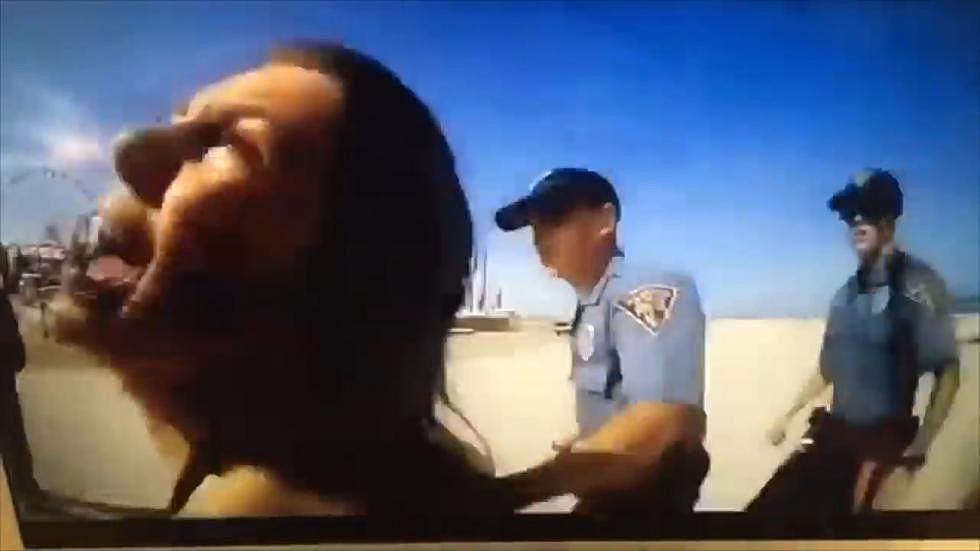
Deadly DUIs: Why, sometimes, those who run do better with the law
If you hit and killed someone while driving and you had been drinking, would you pull over and call police — or would you flee the scene?
Under current New Jersey state law, you could wind up facing a lesser penalty if you took off.
“If you’re convicted of a fatality while being under the influence and leaving the scene of an accident, there can be severe penalties, but the catch here are the facts. The state still has to prove its case beyond a reasonable doubt,” said Robert A. Bianchi, the former Morris County Prosecutor.
He stressed everybody should follow the law if they’re involved in any kind of accident. But there are numerous instances where there’s a DUI fatality and people leave the scene, are caught later with drugs or alcohol in their system, “but the prosecution’s case has become really weakened because it has to convince the jury, 12 folks, beyond a reasonable doubt, that the person at the time of the accident was under the influence, and this becomes very difficult without any other independent evidence.
"So in some circumstances, the defendant does benefit."
'The justice system is failing'
It's a hangup in the legal system in which Danielle Procopio sees no justice. Procopio's 15-year-old daughter, Marissa, was killed attempting to cross Route 36 in Atlantic Highlands last year,
The driver of the vehicle that struck and killed her daughter, Toni Marletta of Middletown Township, never stopped, police say. She tested positive for alcohol and cocaine after she was questioned at her home after the accident, authorities say.
Marletta has been indicted with a second-degree charges — knowingly leaving the scene of an accident resulting in a fatality — and two counts of endangering the welfare of a child, because there were teens were in the car with her.
But she's not facing any charge of vehicular manslaughter.
“I shouldn’t be fighting for justice for a crack-head alcoholic who ran my kid over. The justice system should have already incarcerated her,” Procopio said. “Rather than rewarding her, not charging her and letting her walk around on bail, it’s basically saying it’s okay, run somebody over, leave the scene of the accident. It’s okay if you test positive for cocaine and alcohol because we can’t prove it. That’s not okay. The justice system is failing.”
The state has offered her a plea deal and if it’s accepted, will seek a 7-year prison term. Marletta was indicted earlier this year and arraigned last month.
Leave the scene, compromise the case
Bianchi explained under current state law if you leave the scene of an accident where someone has been seriously hurt or killed “there is a mandatory state prison sentence even for first offenders, even if it’s a third-degree offense, and the range of the crime can be between three and five years.”
If the case is elevated to the 2nd degree “it can carry of sentence of 5 to 10 years, and half of that sentence could be mandatory, with no parole, so if it’s proven you left the scene of a serious accident you can pretty much expect you’re going to go to jail.”
But if you’re involved in fatal car accident, you’re intoxicated and you remain at the scene the way you’re supposed to, the penalties can be a lot more severe.
"You can be charged anywhere from a death by auto offense, all the way up to an aggravated manslaughter which is very, very serious and can carry a 30 year state prison sentence," Bianchi said.
He added in situations where drivers flee the scene, “prosecutors would be looking for witnesses, looking to see where they went beforehand. Were they in a bar? They’re trying to exhaust all they can to get the facts.
"But all things being equal, at the end of the day, if the prosecutors can’t prove the person was literally under the influence at the time of the accident, the defendant benefits by having the prosecution having a weak case.”
Seeking a change
Procopio says it’s wrong Marletta hasn’t been charged with vehicular homicide or vehicular manslaughter, because alcohol and cocaine were allegedly found in her system, even though it was a few hours after the fatal accident.
“If you flee the scene it’s for a reason, and when they catch you, the law should be, whatever substances are in your body that same day or night, you should be charged as though it’s in your body at the time of the accident,” she said. “This way you’re not rewarded for leaving the scene. That’s justice.”
Procopio said she still sorely misses Marissa.
“My daughter was an honor roll student. She was a Girl Scout. She did volunteer work. She helped with Easter egg hunts for little kids,” Procopio said. “She was on the basketball team, the soccer team. She ran track. She played the clarinet. She was part of the 4H Club and she went to church on Sunday. She was a good girl.”
Bianchi noted whether someone is charged with leaving the scene of a fatal accident or vehicular homicide, sentences can, and do vary greatly.
He stressed if a prosecutor believes someone who fled the scene was under the influence at the time of a fatal accident, the prosecutor can “go very heavy and hard on the leaving the scene charge, which requires a mandatory state prison sentence even for a first offender. So where typically first offenders on a case may get a break or probation, the prosecutor would probably not be inclined to offer as lenient a sentence knowing, or believing, even though they can’t prove it beyond a reasonable doubt that the person was under the influence.”
He said a key in determining what charges to file will be the level of recklessness involved.
“If there was a high probability, that’s the language they use, that a person could have been killed by the conduct of the individual, not just a possibility but a probability," Biachi said. "The probability moves towards that aggravated manslaughter charge and possibility moves to the lower range.”said.
Difficult for prosecutors
Bianchi noted prosecutors will also consider the prior record of individuals charged, as well as the level of damage, the number of victims, etc.
“I had a case for example of a person who had been convicted of numerous DUI’s before, had actually injured someone on another one and then ran over and killed two young girls," he said, That was a person we filed ag(gravated) manslaughter charges against because the person was literally drinking inside the vehicle at the time of the incident — killed two people and was reckless while they were driving."
So what type of charge would a typical first-time offender who kills someone in an accident be facing?
“That’s hard to say because there is disparity between the counties about how these cases are handled,” he said. “I’ve seen cases, I’ve had cases, even as a defense attorney, where I’ve been able to secure probation on some cases."
Other cases can range from a few years to as much as 30.
"You do it based on the law and reviewing the facts, and you try to see in your mind, ethically as a prosecutor, what can I prove beyond a reasonable doubt, or what is just," Bianchi said. These are very difficult cases for prosecutors. We deal with real people in a real courtroom. Some of these people may have just been over the legal limit and, it’s not justifying what they did, but they are completely devastated and destroyed by what happened.”
More from New Jersey 101.5:
More From New Jersey 101.5 FM









